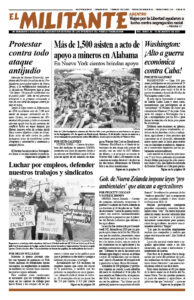French President Emmanuel Macron is using deadly assaults by Islamists to push through legislation restricting free speech and freedom of worship. The laws make what he calls “separatism” a criminal offense in the name of imposing “French values.”
The Law Reinforcing Respect of the Principles of the Republic passed the French National Assembly 49-19 July 23. It allows the government to shut down houses of worship and dissolve religious organizations if it finds congregants are “provoking violence or inciting hatred.”
It demands religious organizations obtain government permits to operate every five years, and every year if they receive funding from outside France.
The law makes “separatism” a criminal offense, with prison sentences and hefty fines for those who threaten an official because they don’t want to obey rules governing use of public services. One example they give is a woman who refuses too loudly to be examined for religious reasons by a male doctor at a public hospital.
The thrust of these moves is to defend the “purity” of the French race and culture. They foreshadow future claims of racial superiority and the rise of rightist currents.
The National Assembly version of the law dropped some provisions passed earlier by the Senate, such as barring women at public pools from wearing “burkinis” — swimsuits that cover most of the body.
The law’s passage follows the negotiation and adoption of a Charter of Principles by government authorities and the French Council of the Muslim Faith in January. Signatories of the charter promise to refuse “the promotion of what is known as ‘political Islam.’” It states that “denunciations of so-called State racism” are “slander.” The month before the charter was agreed to the government inspected 76 mosques suspected of “separatism,” threatening to close them down. Interior Minister Gerald Darmanin accused imams of being “anti-Republican,” alleging their “discourse runs counter to our values.” At the same time the government deported 66 undocumented immigrants suspected of “radicalization.”
In the past year Islamists have carried out a rash of attacks — fatally stabbing a police officer, killing three people at a church in Nice and decapitating a schoolteacher who had shown cartoons of the Prophet Muhammad in a class discussion on free speech.
Protests against the “anti-separatism” bill took place across France in March, organized by the Front Against Islamophobia and for Equal Rights for All.
“If nothing is done, laxity will spread inexorably across society, provoking in the end an explosion,” 20 retired generals wrote in a July letter to the right-wing magazine Valeurs Actuelles, threatening “the intervention of our active-service comrades in the perilous protection of our civilization’s values.”
Marine Le Pen, leader of the National Rally Party, supported the generals’ letter and demanded the government “expel the illegals, eradicate Islamism.”
The new laws, taking advantage of revulsion among working people against the attacks carried out by Islamists, set a precedent for restricting free speech rights. They can and will be used not only against Muslims, the overwhelming majority of whom oppose terrorist attacks, but against labor unions and political groups that oppose government policies.

